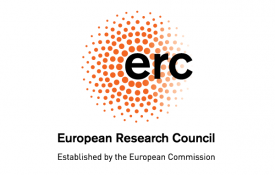-

ERC Consolidator Grants Offer €600 Million to European Scientists
The European Research Council (ERC) has announced the winners of its Consolidator Grant competition. A total of €600 million was awarded to 301 researchers from across Europe. The Consolidator Grant allows scientists to establish research teams and continue their career at an EU institution.
-

NSF Funding to Support Transition From New Research Discoveries to Innovation
The National Science Foundation (NSF) offers researchers the opportunity to transition their research from discoveries to the marketplace through the Partnerships for Innovation Program (PFI).
-

NIH Funding for Studying Effectiveness of Evidence-Based Mental Health Treatments
This opportunity seeks to improve the delivery of those evidence-based mental health services to low-resource areas through the findings of the funded projects.
-
Aus Fehlern lernen? Da gibt es ein Problem
Den Spruch „Aus Fehlern lernt man“ hören wir unser Leben lang – von Kollegen, Familie, Freunden. Dass das stimmt, zweifelt eine Studie an: Nach eigenen Fehlern setzt vor allem ein Mechanismus ein. ... Von allen Seiten wird eine „Kultur des Scheiterns“ gefordert. Dabei tun uns Fehler überhaupt nicht gut - ganz im Gegenteil, zeigt eine Studie von Lauren Eskreis-Winkler und Ayelet Fishbach von der University of Chicago. „Unsere Gesellschaft feiert das Scheitern als lehrreichen Moment“, schreiben die Psychologinnen in dem Paper, das im Fachblatt Psychological Science veröffentlicht wurde. Das Ergebnis aus fünf Experimenten bietet jedoch eine andere Realität: Scheitern hemme den Lernprozess.
-
What to Do About an Overtalker
Maybe the person sits near you at work. Maybe he or she is your second cousin-in-law, your Hinge date or your seatmate on a 19-hour flight to Sydney. Most of us have met a compulsive talker: A person who dominates discussions with nonmeaningful chatter and misses, or ignores, cues that listeners are scanning for the exit. It’s tempting to believe, when cornered by such a chatterer, that a chronic talker is a selfish egotist. Yet, it is often the opposite. Research has linked overtalking to anxiety, attention deficit disorder, being on the autism spectrum or to compulsive behavior on the lines of shopaholism or workaholism. ...
-
New research helps explain how Trump successfully muddied the water on Ukraine and impeachment
People who are repeatedly exposed to the same false information, even if they’re initially told that it is false, feel fewer qualms sharing it on social media after each additional time they see it. In five experiments involving more than 2,500 Americans, Daniel Effron, who teaches organizational behavior at the London Business School, and Medha Raj, a PhD student at the University of Southern California, documented how seeing a fake headline just once leads individuals to temper their disapproval of the misinformation when they see it a second, third or fourth time.

